
Professor Eileen Gentleman
Professor in Bioengineering
- Academic Lead for Impact, FoDOCS
Research interests
- Engineering
Biography
Eileen Gentleman is a Professor in the Centre for Craniofacial & Regenerative Biology at King's College London.
She joined Imperial College London in 2005 as post-doctoral research associate (Stevens Group) after completing her PhD in Biomedical Engineering (Tulane University, USA). In 2011, she was awarded a Wellcome Trust Research Career Development Fellowship and moved to King's where her research focuses on developing biomaterials to modulate the physical and biological properties of the 3D cell niche to control stem cell differentiation for tissue engineering and disease modelling. Her work has been published in Nature Materials, Nature Biomedical Engineering, PNAS, and Biomaterials.
Eileen has received funding awards from the Wellcome Trust, the MRC, the Rosetrees Trust, the Royal Society, and Orthopaedic Research UK, and is a recipient of both a Wellcome Image Award (2016) and an MIT Koch Institute Image Award (2016). The Orthopaedic Research Society named her as a finalist for their New Investigator Recognition Award (2010) and in 2013 her work in regenerative medicine was recognised with a prestigious Philip Leverhulme Prize.
Follow her on twitter @GentlemanLab
Research
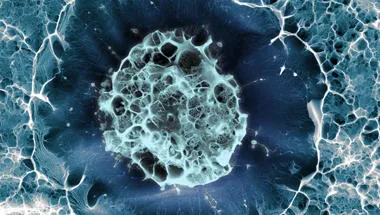
Centre for Craniofacial & Regenerative Biology
Our research goes beyond the mouth. If we understand how the entire face and head forms, we can repair damage and regenerate cells. If we unravel the causes of diseases, we can treat patients successfully. If we solve these problems, our discoveries will improve health worldwide.
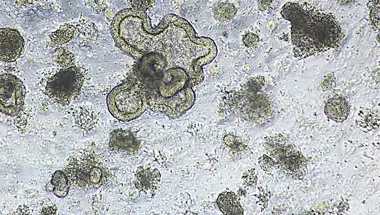
Gentleman Lab
The Gentleman lab works at the interface of stem cell biology, chemistry and materials science to develop innovative biomaterials for regenerative medicine.
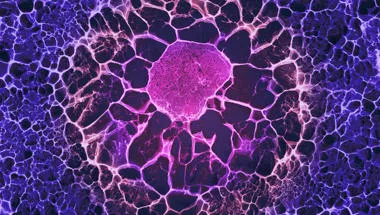
Regenerative Biomaterials
Regenerative biomaterials are an essential component in developing advanced cell and gene therapies for tissue regeneration. The Centre for Craniofacial & Regenerative Biology is at the forefront of regenerative biomaterials discovery and translation, thanks to unique synergies arising from leading expertise in developmental biology, bioengineering and cell technologies.
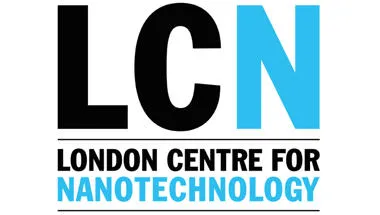
London Centre for Nanotechnology
The London Centre for Nanotechnology is a UK-based multidisciplinary enterprise operating at the forefront of science and technology. Its purpose is to solve global problems in information processing, healthcare, energy and the environment through the application of nanoscience and nanotechnology.
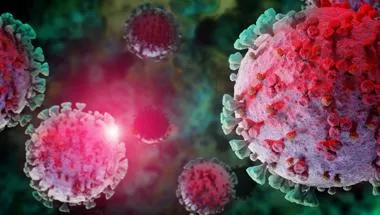
King’s MechanoBiology Centre (KMBC)
The King’s MechanoBiology Centre gives a common platform for researchers across different disciplines with complementary interests in mechanobiology

Organoids Research Interest Group (ORIG)
Organoids are 3D, miniature versions of organs grown from stem cells. They replicate organ structure and function, making them essential for studying tissue homeostasis, disease mechanisms, and developing new therapies. This research interest group encompasses all organoid-related research at King’s College London.
News
Academic Promotions
Many congratulations to the following members of the Faculty of Dentistry, Oral & Craniofacial Sciences who have been awarded academic promotions during the...

Gut and lung organoids open the door to innate immune cell therapies
King’s researchers have found an innovative approach for expanding and maturing innate immune cells in a dish.
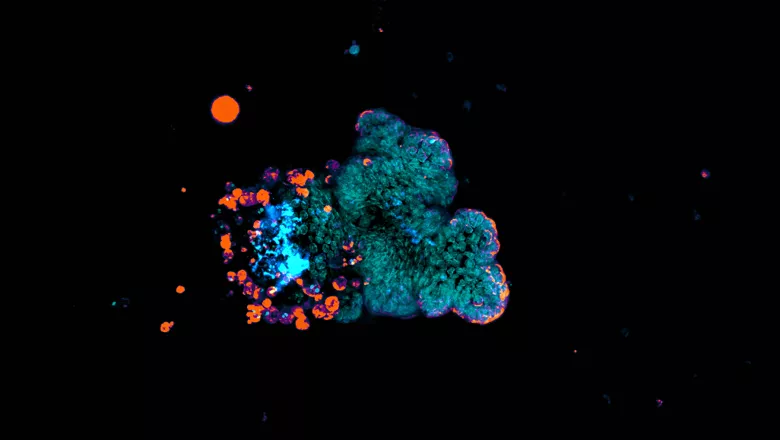
Royal Society Pairing Scheme – A Week in Westminster
Earlier this year, Dr Eileen Gentleman, Academic Lead for Impact, participated in the Royal Society Pairing Scheme Week in Westminster. In this short blog,...

Harnessing cell signalling to stimulate tooth repair
In two recent publications the Sharpe/Gentleman groups report two different approaches to stimulate Wnt signalling to enhance the formation of dentine.
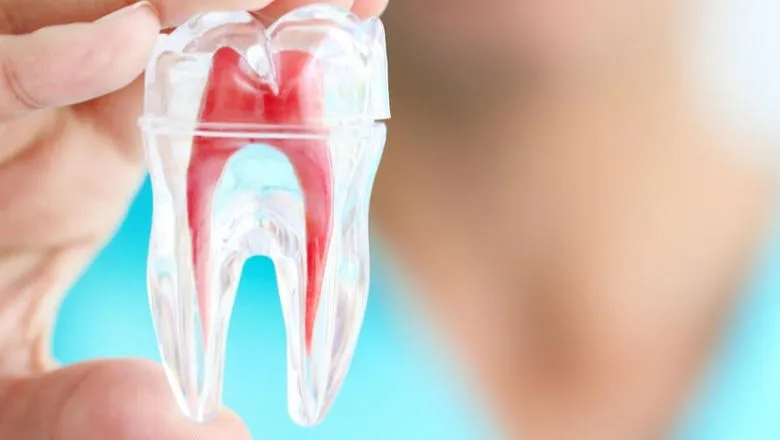
Rare immune cells drive gut repair, but can tip toward cancer or fibrosis in inflammatory bowel disease
Scientists from King’s College London have discovered an unexpected tissue reparative role for a rare immune cell type in the gut.
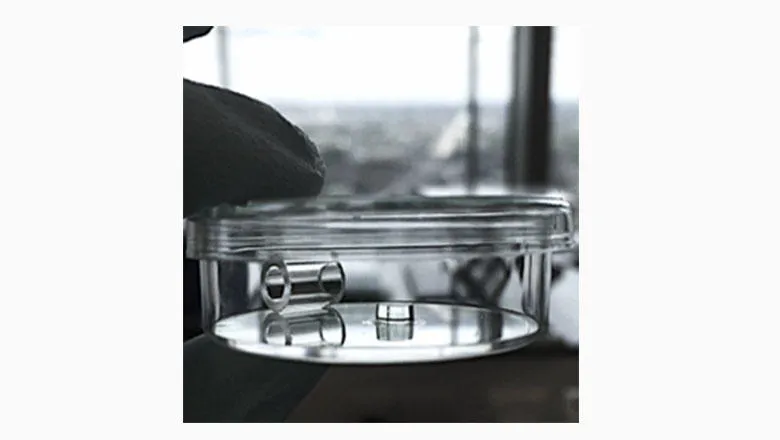
Adult stem cells control their own fate
A team of researchers at King’s College London and their collaborators have discovered why laboratory-grown tissues may fail when used to treat a range of...
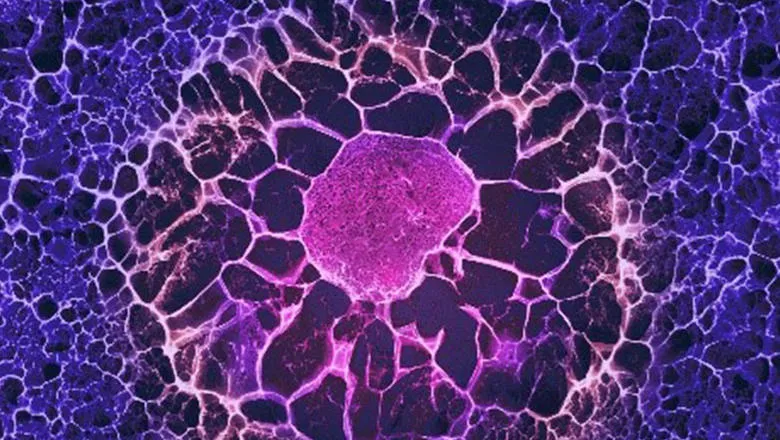
Research

Centre for Craniofacial & Regenerative Biology
Our research goes beyond the mouth. If we understand how the entire face and head forms, we can repair damage and regenerate cells. If we unravel the causes of diseases, we can treat patients successfully. If we solve these problems, our discoveries will improve health worldwide.

Gentleman Lab
The Gentleman lab works at the interface of stem cell biology, chemistry and materials science to develop innovative biomaterials for regenerative medicine.

Regenerative Biomaterials
Regenerative biomaterials are an essential component in developing advanced cell and gene therapies for tissue regeneration. The Centre for Craniofacial & Regenerative Biology is at the forefront of regenerative biomaterials discovery and translation, thanks to unique synergies arising from leading expertise in developmental biology, bioengineering and cell technologies.

London Centre for Nanotechnology
The London Centre for Nanotechnology is a UK-based multidisciplinary enterprise operating at the forefront of science and technology. Its purpose is to solve global problems in information processing, healthcare, energy and the environment through the application of nanoscience and nanotechnology.

King’s MechanoBiology Centre (KMBC)
The King’s MechanoBiology Centre gives a common platform for researchers across different disciplines with complementary interests in mechanobiology

Organoids Research Interest Group (ORIG)
Organoids are 3D, miniature versions of organs grown from stem cells. They replicate organ structure and function, making them essential for studying tissue homeostasis, disease mechanisms, and developing new therapies. This research interest group encompasses all organoid-related research at King’s College London.
News
Academic Promotions
Many congratulations to the following members of the Faculty of Dentistry, Oral & Craniofacial Sciences who have been awarded academic promotions during the...

Gut and lung organoids open the door to innate immune cell therapies
King’s researchers have found an innovative approach for expanding and maturing innate immune cells in a dish.

Royal Society Pairing Scheme – A Week in Westminster
Earlier this year, Dr Eileen Gentleman, Academic Lead for Impact, participated in the Royal Society Pairing Scheme Week in Westminster. In this short blog,...

Harnessing cell signalling to stimulate tooth repair
In two recent publications the Sharpe/Gentleman groups report two different approaches to stimulate Wnt signalling to enhance the formation of dentine.

Rare immune cells drive gut repair, but can tip toward cancer or fibrosis in inflammatory bowel disease
Scientists from King’s College London have discovered an unexpected tissue reparative role for a rare immune cell type in the gut.

Adult stem cells control their own fate
A team of researchers at King’s College London and their collaborators have discovered why laboratory-grown tissues may fail when used to treat a range of...

